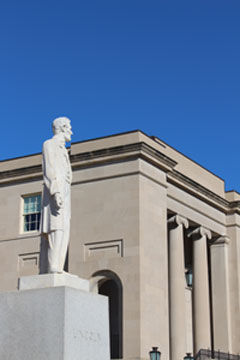DC Council has supplemented its initial COVID-19 legislation. A copy of the Supplemental statute is here. The Supplemental Act will remain in effect until June 15, 2020, unless extended.
CARES Act and DC Real Estate Litigation
On March 27, 2020 the Coronavirus Aid, Relief, and Economic Security Act (“CARES ACT”) became federal law. With regard to eviction cases, the legislation provides for a 120-day moratorium on eviction filings for non-payment of rent. Thereafter, those tenants are entitled to a 30-day notice before any nonpayment of rent eviction could be filed.
The key to this legislation is the definition of “covered properties.” The statutory list includes most federally-assisted rental housing programs, including public housing, the Housing Choice Voucher Program, and the Section 8 project-based program.
Importantly, the prohibition on nonpayment of rent eviction filings also includes any property with a “federally-backed mortgage loan.” This term is defined to include any loan “made in whole or in part, or insured, guaranteed, supplemented, or assisted in any way, by any officer or agency of the Federal Government or under or in connection with a housing or urban development program administered by [HUD] or a housing or related program administered by any other such officer or agency, or is purchased or securitized by the Federal Home Loan Mortgage Corporation or the Federal National Mortgage Association.” This broad definition means that landlords with loans serviced by Fannie Mae or Freddie Mac cannot file nonpayment of rent eviction cases until after the moratorium ends.
Homeowners can look up whether their loans are backed by the mortgage companies through Fannie Mae and Freddie Mac’s websites. Fannie Mae’s online form can be found here and Freddie Mac can be found here.
The CARES ACT does offer landlords with federally backed mortgages some protections regarding mortgage payments. Upon a request, a borrower may receive a forbearance on mortgage payments for up to 180 days, plus an additional 180 days if the borrower requests an extension. Landlords of multifamily properties may seek a forbearance for up to 30 days and may extend the forbearance for up to 2 additional 30 day periods.
A copy of the legislation can be found here.
Battino & Sokolow PLLC is working to stay on top of all relevant laws as they relate to COVID-19 and real estate litigation in the District of Columbia.
Aaron Sokolow interviewed on CBS WUSA9
Washington, DC CBS affiliate WUSA9 recently wanted to know how the Coronavirus emergency affects evictions for those unemployed during this pandemic. For information on evictions in the District of Columbia, reporter Larry Miller interviewed Attorney Aaron Sokolow. You can watch the interview here.
DC COVID-19 Response Emergency Amendment Act of 2020
DC Council has enacted emergency legislation that affects rental housing in the District of Columbia. Most importantly, while the DC Superior Court had administratively cancelled hearings through May 15, 2020, the new statute explicitly prohibits new cases from going forward. D.C. Code § 16-1502 now states that a summons must be served seven days in advance of a hearing and the seven-day period excludes any period of time for which the Mayor has declared a public health emergency.
The statute also explicitly states that landlords cannot perform an eviction or charge a late fee during a public health emergency.
Other relevant sections state that electric, gas, and water service cannot be shut off for nonpayment during this public health emergency. Time frames are also extended for other tenants’ rights, such as the Tenant Opportunity to Purchase Act (TOPA), responding to conversion and sale documents, and filing tenant petitions.
A copy of the legislation can be read here.

